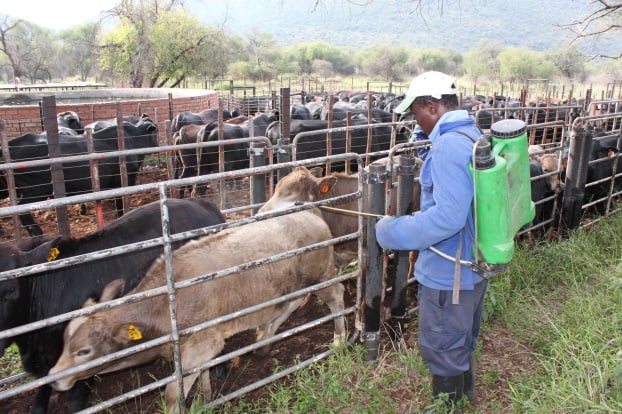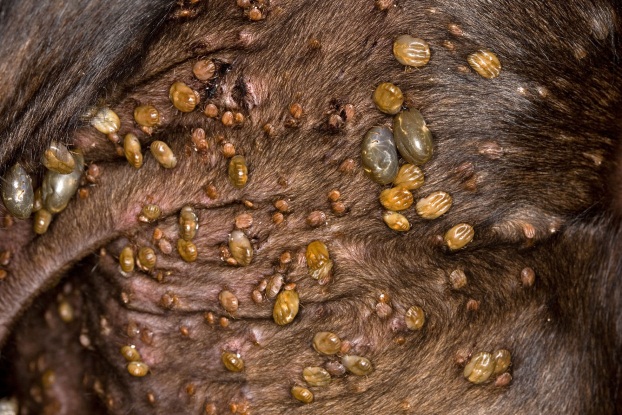[email protected]
Ticks and Tick-borne Diseases Research Program
 Dr Maritz-Olivier (née Maritz) is a senior lecturer in the Department of Genetics in the Faculty of Natural and Agricultural Sciences at the University of Pretoria.
Dr Maritz-Olivier (née Maritz) is a senior lecturer in the Department of Genetics in the Faculty of Natural and Agricultural Sciences at the University of Pretoria.
After her PhD in 2005, she completed a Wellcome Trust-funded postdoctoral fellowship (2005‒2010). Her research on ticks and tick-borne diseases focuss on vaccine development against the cattle tick, Rhipicephalus microplus and understanding the parasite-pathogen interphases of R. microplus, Babesia and Anaplasma.
Dr Maritz-Olivier has an NRF C2 - rating, has presented research findings at 17 international and 45 national conferences, of which eight were invited status. She is author of 21 international, peer-reviewed publications.
She has received various national and international awards, including a Mellon Foundation Postgraduate Fellowship (New York), the Bruce and Betty Alberts Endowed Scholarship in Physiology, the Caswell Grave Scholarship and the Frank R Lillie Fellowship from the Marine Biology Laboratory (MA, USA), a Young Scientist Award from the International Union of Biochemistry and Molecular Biology and Best Biotechnology Research Programme from the Gauteng Department of Agriculture and Rural Development (GDARD).
She has co-authored a book on aspects of modern vaccinology, entitled Molecular vaccines – from prophylaxis to therapy.
Christine Maritz-Olivier's research on ticks and tick-borne diseases comprises four pillars. The first is the development of anti-tick vaccines using a combined functional genomics and reverse vaccinology approach. The second focuses on understanding the genetic diversity of ticks throughout South Africa, their current acaricide resistance status and tick-borne pathogen profiles. The third research pillar aim to enhance our understanding of pathogen-host interactions of the tick-borne pathogens Babesia divergens (causative agent of redwater) and Anaplasma marginale (causative agent of gall sickness) via drug screening, transcriptome analyses and interactome studies. The fourth research pillar is entails the development of vector-control strategies for haematophagous vectors such as mosquitoes and biting midges using in vivo gene silencing strategies and artificial feeding systems.


1. Christian Stutzer, Willem Andries van Zyl, Sabine Richards, Nicholas Olivier, Christine Maritz-Olivier (2013). Gene expression profiling of adult female tissues in feeding Rhipicephalus microplus. International Journal for Parasitology.
2. Elizabeth Louw, Nicolaas A. van der Merwe, Albert W.H. Neitz, Christine Maritz-Olivier. (2013). Evolution of the tissue factor pathway inhibitor-like Kunitz domain-containing protein family in Rhipicephalus microplus. International Journal for Parasitology, 43, 81–94.
3. Annette-Christi Barnard, Ard M. Nijhof, Wilma Fick, Christian Stutzer and Christine Maritz-Olivier (2012). RNAi in Arthropods: Insight into the Machinery and Applications for Understanding the Pathogen-Vector Interface. Genes, 3, 702-741.
4. Maritz-Olivier C, van Zyl W, Stutzer C (2012). A systematic, functional genomics and reverse vaccinology approach to the identification of vaccine candidates in the cattle tick, Rhipicephalus microplus. Ticks Tick Borne Diseases, Apr 19.
5. Annette-Christi Badenhorst, Ard Nijhof, Albert Neitz, Frans Jongejan, Christine Maritz-Olivier (2012). Expression profiling, gene silencing and transcriptional networking of Metzincin metalloproteases in the cattle tick, Boophilus microplus. Vet Parasitol.;186(3-4):403-14
Copyright © University of Pretoria 2024. All rights reserved.
Get Social With Us
Download the UP Mobile App